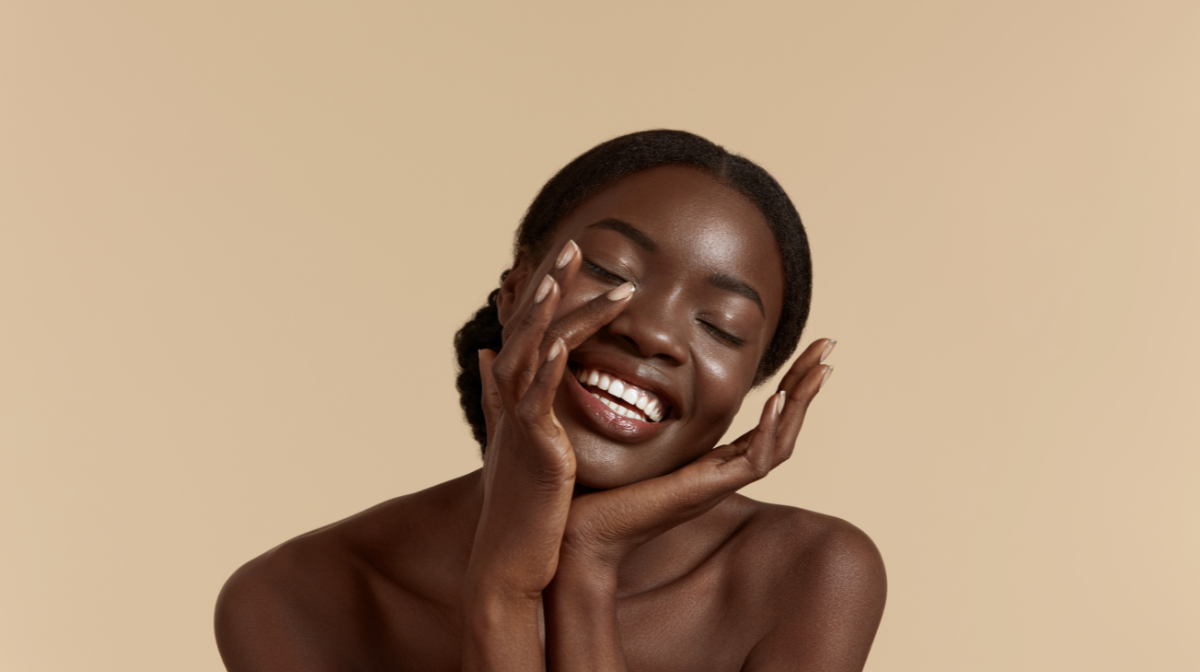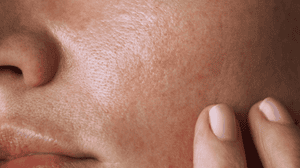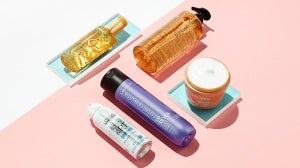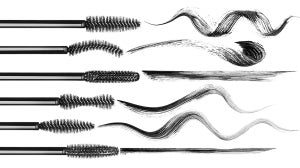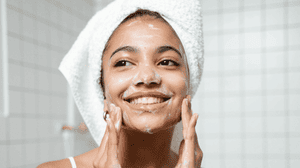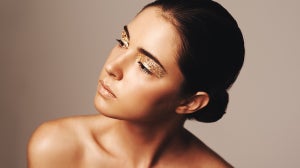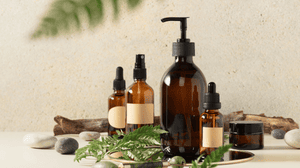
When we think about caffeine, most of us picture that essential morning coffee — the one that wakes us up and gets us through the day.
But it isn’t just good for giving you that energy boost, it may also be a powerhouse ingredient for your skincare routine.
You’ve probably noticed it popping up in eye creams, serums, and even body products, but is it worth the hype? Our guide discusses the benefits of caffeine for the skin, so you can decide for yourself.
What Does Caffeine Do to Your Skin?
Caffeine has been a subject of multiple studies, and it turns out that it's not just for helping you stay awake.
Contains Antioxidant Properties
Our expert, Kirsty Gainey, Account Head of R&D at THG LABS states “caffeine has been well studied and found to be an antioxidant” she notes, “It could help to neutralise free radicals, which are associated with skin ageing.”
Essentially, it acts to defend your skin against any environmental factors that could be causing wrinkles, fine lines, and other signs of wear and tear.
While caffeine won't make your skin look ten years younger overnight, it may help to support a youthful-looking appearance, if added to your daily routine.
Believed to Act as a Natural Stimulant
One of the most attractive things about this ingredient is its energising properties. Gainey explains, “it works as a natural stimulant, so is reputed to deliver a radiant and healthy look to the skin.”
Could Reduce Puffy Eyes
Our expert notes “caffeine is often used in eye products, because it is thought to help alleviate the look of puffiness around the eye area.” Some studies have suggested that it could increase microcirculation in the skin, which could explain its ability to support a more refreshed appearance.
Even though it definitely won’t replace the benefits of a quality night's sleep, it could definitely be a helpful tool to have up your sleeve on those early mornings.
Could Support Firmer-Looking Skin
This ingredient is also a staple in many body care products, particularly for those looking to achieve firmer-looking results.
Gainey adds, “caffeine also makes an appearance in body care products aimed at reducing the appearance of cellulite.”
There are loose links that it could work to increase lipolytic activity (the process of breaking down fat cells), however, there is limited evidence to support this.
When to Incorporate Caffeine into Your Routine
So, when’s the best time to add this ingredient to your skincare lineup?
Well, our expert suggests, “most of the claims associated with caffeine would benefit from a twice-daily application.”
In most cases, people opt for morning and evening application, but “the right time to incorporate it into your routine will depend on what you are using it for, and the product type”, Gainey states.
Caffeine isn’t just for getting you through the day — it’s a versatile skincare ingredient that could offer multiple benefits.
Just remember that while it may give your skin a much-needed boost, it’ll likely work best if used consistently.
Now you’ve learned whether caffeine is good for the skin, discover our guide on how to get rid of bags under the eyes, so you could find other ways to support healthy-looking skin.

